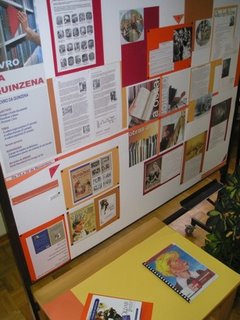
 Oliver foge da sua cidade natal e ruma até Londres à procura da sua fortuna. Muitas outras pessoas seguiram os mesmos passos de Oliver no século XIX.Com uma população superior a 2 milhões de pessoas, Londres era a maior cidade de Inglaterra e provavelmente a maior do mundo naquele tempo.
Oliver foge da sua cidade natal e ruma até Londres à procura da sua fortuna. Muitas outras pessoas seguiram os mesmos passos de Oliver no século XIX.Com uma população superior a 2 milhões de pessoas, Londres era a maior cidade de Inglaterra e provavelmente a maior do mundo naquele tempo.De muitas maneiras, Londres era o centro do mundo. A Bretanha estava a começar a ficar a maior nação industrializada e, ao mesmo tempo, o império britânico estava em constante crescimento. Londres, que era a residência da rainha Vitória e das Casas do Parlamento, era o centro de todo este poder. Embarcações de todo mundo chegaram ao porto de Londres carregados de uma enorme quantidade e variedade de produtos. Muitos homens de negócios enriqueceram em Londres e acumularam enormes fortunas.
Em várias partes da cidade havia casas magníficas, parques extensos e ruas e lojas elegantes. A classe média londrina, de que fazia parte Mr Brownlow, levava uma vida bastante confortável.
Mas, no outro lado da cidade, mais especificamente em “East End” perto das docas, existia uma enorme comunidade de pobres. Esta era a área de Londres para a qual Artful Dodger encaminhou Oliver para conhecer Fagin. Neste local, as casas eram velhas e estavam em ruínas, as ruas eram estreitas, escuras e sujas.
Nestas áreas não existia nenhuma infra-estrutura que é natural encontrar nas cidades modernas, como a inexistência de transportes públicos, nenhuma polícia devidamente organizada, nem corporação de bombeiros, a iluminação não era suficiente durante a noite, não existia nenhum fornecimento de água potável nem sistema de esgotos, assim como também não havia nenhuma limpeza e recolha do lixo. As condições sanitárias eram muito fracas. O lixo e os desperdícios acabavam a maior parte do tempo por ficar na rua ou ir para o rio.
Londres era suja e caótica, mas era uma cidade fascinante. O seu tamanho, as multidões, o barulho e a sua incrível variedade de pessoas e espaços deveriam ter sido um choque para um miúdo de uma pequena aldeia, como Oliver.
Mesmo Dickens, que nasceu fora de Londres, nunca perdeu o interesse pela cidade e escolheu-a como local da acção em muitas das suas obras.
David Costa Nº3 10ºC
Juliana Pessoa Nº9 10ºC
Oliver escapes from his hometown and makes his way to London to seek fortune. Many others followed the same road in the 19th century. With a population of over 2 million, London was the greatest city in England and probably the biggest in the world at that time.
In many ways London was the centre of the world. Britain was becoming the first great industrial nation and, at the same time, the British Empire was growing. London, the home of Queen Victoria and the Houses of Parliament, was the focus of all this power. Ships from all over the world arrived there carrying an enormous variety of goods. Many businessmen grew rich and some up fabulous fortunes.
In parts of the city there were magnificent townhouses, extensive parks, and elegant streets and shops.
Middle-class Londoners, such us Mr Brownlow in the story, lived very comfortable lives.
But, on the other side of the city, especially in the “East End”, near the docks, there was also terrible poverty. This was the area of London where the Artful Dodger brought Oliver to meet Fagin. Here the houses were old and broken-down, and the streets were narrow, dark and dirty.
In these areas there were none of the facilities that we expect in a modern city. There was no public transport, no properly organised police force or fire service, no effective street lighting at night, no proper water supply or sewage system, no service to remove rubbish. Sanitary conditions were very poor. Rubbish and waste often ended up on the street or in the river.
London was dirty and chaotic, but it was a fascinating city. Its tremendous size, the crowds, the noise, and the incredible variety of people and places must have been a shock for a boy from a small town, such as Oliver.
Dickens himself, who was born outside London, never lost his interest in the city and set many of his stories there.
David Costa Nº3 10ºC
Juliana Pessoa º9 10ºC
[ “…London was the centre of the world.”
“…Londres era o centro do mundo.”
[ “…the first great industrial nation…”
“…a maior nação industrializada…”
[ “…the British Empire was growing.”
“…o império britânico estava em constante crescimento.”
[ “…carrying an enormous variety of goods.”
“…carregados de uma enorme quantidade e variedade de produtos.”
[ “In these areas there were none of the facilities…”
“Nestas áreas não existia nenhuma infra-estrutura…”
[ “There was no public transport, no properly organised police force or fire service, no effective street lighting at night, no proper water supply or sewage system, no service to remove rubbish.”
“…a inexistência de transportes públicos, nenhuma polícia devidamente organizada, nem corporação de bombeiros, a iluminação nas ruas não era suficiente durante a noite, não existia nenhum fornecimento de água potável nem sistema de esgotos…”
[ “Sanitary conditions were very poor.”
“As condições sanitárias eram muito fracas.”
[ “Rubbish and waste often ended up on the street or in the river.”
“O lixo e os desperdícios acabavam a maior parte do tempo por ficar na rua ou ir para o rio.”
[ “London was dirty and chaotic,…”
“Londres era suja e caótica,…”
David Costa Nº3 10ºC
Juliana Pessoa Nº9 10ºC







